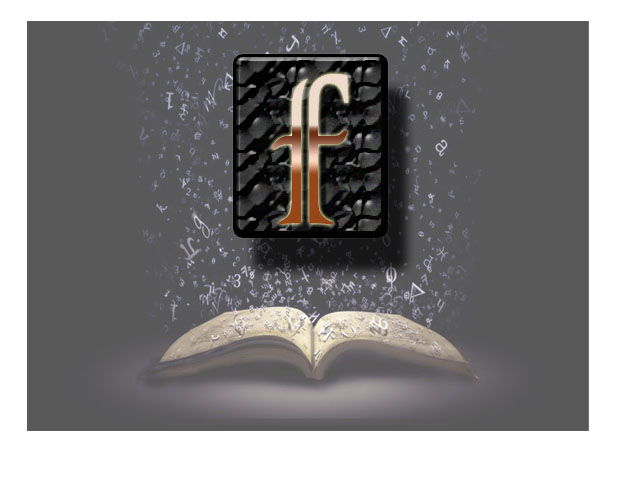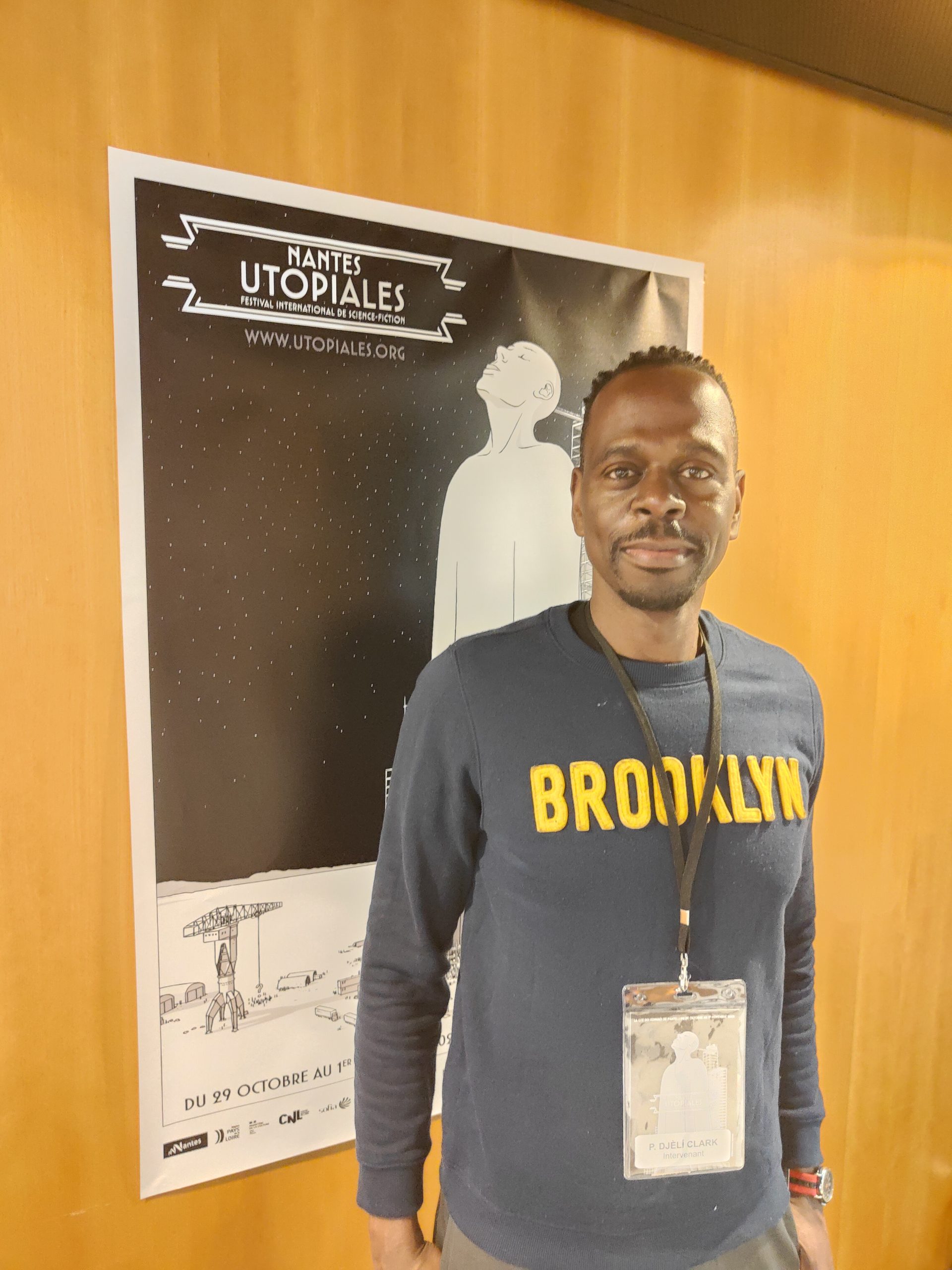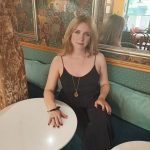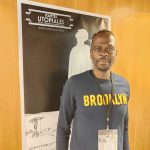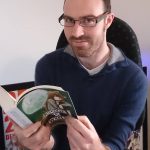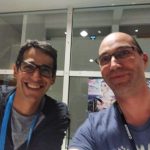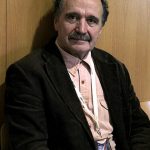I discover Phenderson Djèli Clark, thanks to L’Atalante publisher (in France), and Ring Shout that was awarded by several prices, including Julia Verlanger price in France.
The writer has published several short stories, novellas and novel around alterante history, in New Orleans, Cairo, …
During his presence in France, I asked him some questions.
You can find french translation HERE.
I’m quite surprised because you are an historian and you are writing about alternative story, counterfactuals. How do we link this?
I think my science fiction life existed before I was a historian. And so, I was just always interested in science fiction and fantasy since I was a child. It was what I read, what I watched, everything. Alternative history was something that I was always fascinated by the what if. What if this was changed? I used to read comic books. That was a big thing, what if? I think I was always fascinated by it. Later I would end up becoming very interested in history. I suppose when I started thinking about writing, it’s almost natural that as a historian I started thinking, what if this would change? Even though as historians we know there’s only one history, it’s not going to change. But this is fantasy, this is thinking up and dreaming and it became a way for me to explore, I would say explore certain elements of history, sometimes in a deeper way, by imagining what could have been and helping me better understand and helping students at times understand what is. So the two can work very well together.
Some historians say: the history is history and cannot be modified, right?
In some ways, we can’t. Nobody can. We only have the history that happened, period, end of story. And we only have because we don’t know of any other civilizations that exist anywhere else in the universe. This is the only history, everything in human history is the only history that we know of that exists. True. Any history that you create that is alternate history is inherently fantasy because you are choosing what to change and no one knows what happens if you change one thing. History is so complex; you have no idea what will happen if you change this or that. And so, it’s all fantasy. True, true.
At the same time, I think it is a good way to explore. In my works, for instance, in exploring an alternate history, like in The Black Gods Drums, where Haiti becomes a power, it’s a way for me to explore, why didn’t that happen with Haiti? Why did things turn out differently? Especially for teaching at the students and for bringing in people who may want to know the history more. I found that sometimes writing the fantastical, the alternate, actually brings people closer to the actual history.
So I think it has its uses. Plus, it’s pretty entertaining.
You are a big reader of sensation, big fan of science fiction and you started to write yourself: what was the trigger of this decision?
I will tell you this, it was not a fast story. I started writing in 1999, that is how long it took me to actually start getting published. I say this to writers, if any writers are reading this, patience and perseverance, it might take a while, right, have your patience. But what triggered me then? For a very long time, I would create when I was younger, I’d create stories, for my friends, for my sister, my little sister, I create little comic books, I create little stories, and so I think I would always take my hand as writing, but you’re right, I never thought, oh, I’ll do this professionally. Oh, I’ll write a book and a story that a lot of people would read, and I can’t remember what it was, but something and I read a lot, I would read short stories, I read books. At some point I started thinking, what if I did this? And could I do this? could I try it? And I decided to take the plunge and try writing it, and it took a while to get it right.
And you earn many prices for Ring Shout, you have Nebula, Locus, …
That is all shocking.
How do you manage this?
I don’t know, I’m a historian, so I also write on that side, so it’s like I’m doing a lot of writing. I also are the father of two four-year-old twin girls and a small dog, and so how I managed to get all this, it’s hard, there’s only so much 24 hours in a day, and so it is hard to do. But when I started writing, I never thought, well, I win a prize. I was just trying to get something published. I was happy if I got a short story published in the most obscure magazine or they took my story excellent. I never thought I would be published by Tour, the publishers that I grew up with. I never thought I’d be I remember when they first announced they’re going to give me I was nominated for a prize, I was like, Me?
Nominating, me for a prize because something I wrote. And so, yeah, I’m grateful, I consider myself fortunate, but I never expected that it would turn into a career, a job where I have contracts and people are expecting me to write things. I thought forever I would be happy if they published one book of mine and maybe ten, hundrend people were reading, that would have been enough for me.
You are surprised and now you are translated, in french, what does it mean as author?
It’s different to see my books translated in French. Someone the other day showed me my book translated in Czech. Again, I was just happy if I sold to a few people, I discover that the book is that sold worldwide and coming here to France and people coming up to me and saying I really liked your book and it really spoke to me, this book that’s based in Georgia. And I thank my translator in Mathilde, who did such a fascinating job that people can read this book and understand it in a way, even though it’s not in English, it’s been translated to French and not simply interpreted, but really translated so it speaks a French audience. I’m fascinated by that. Every once in a while, I look at these books in different languages and I say how did this happen?
I discover you with Ring Shout. The story is about American history with subjects around segregation, about Afro-Americans. It’s not so easy to share American history with the context, with people who are not aware about US story. Is it something that you want to share with everyone, this difficult story of America?
I’m very happy that this story is shared. When I first wrote that story, it was just supposed to be a small story before a Master Djin and the publisher just wanted something so that I would have something out. I had this idea in my head and I said what if I told them about the idea? I said that sounds strange, but we’ll see. I am again grateful, first of all, that even in America that people there got the book. I really thought it would be a book that a few small groups of people understood, but that it managed to reach a lot of people, that they managed to understand it, and that people not from the US also managed to get the book.
I think that just speaks to the fact that I was fortunate enough and I always say fortunate because a lot of this is just luck. I happen to put the words down the right way. I could have done it a different way that I’m fortunate enough that the story managed to have a universality to it, which is something that I didn’t think it would happen first and that surprised me. I thought it would be a very small story that a few people understood. But it turned out that the themes I think I was talking about, even if people weren’t aware of the history as much, were universal enough to speak to many people ideas of oppression and fighting against it and what hate can do to a person even as they’re fighting against it. I think that’s so human that it crossed borders. It didn’t matter if you were from the south because I thought, people will not understand this unless they’re from the American South. But it turned out people from the American North and the west understood it turned out people in France understand it and in Spain. And so I think there’s something about it that is universal. And I’m just happy and glad that I was able to touch on that without knowing that I would do so.
Reading your text, we are incited to have a look on what is a Ring Shout… Could you explain what is the Ring Shout ritual…
The ritual is a ritual that was created in many ways during American slavery, enslaved people creating this ritual that was a type of spiritual ritual. And many people aren’t certain of its origins. Some people trace it to certain parts of Africa, but nobody’s really certain. It may have been something that was in part from Africa, but it also created by enslaved people in the American South, and it was a spiritual movement that they would do in many ways. And the Ring Shout itself was more movement than anything else, where they would move in this circle while they were singing these songs, and they didn’t have instruments, so that they’re beating their chest and they’re clapping their hands and tamping their feet, and it’s very rhythmic. If you hear you see a ring shout, it’s infectious. You can’t help but turn around and look and see this thing. They manage to not have any instruments, not have anything. These are people who can’t have these things. They’ve been banned. And yet they manage to make this music and make these movements where they’re just moving around. Some of their songs are about working every day, but some of their songs are about religion.
As I put in the book, I realize when I’m listening to these songs that there’s deep cosmology and philosophy in these songs, right? They’re talking about life and death and what it’s like to think on things. And I can imagine being an enslaved person and having to do this horrible work over and over again. And this is a time when perhaps your mind just goes and you’re thinking and how many philosophers and all this are being born here? And people are not recognizing them as they’re thinking on life and human existence and all of these things. The shout means all those things to me. I wanted to really evoke a lot of that with the story. When I was writing the story, I didn’t know it first. I knew the shout was going to be in there, but it was when I was writing, I said, this is going to be the magic system, because this has all the magic in it. It has magic I can’t even put in words, but the magic is all here. I really wanted people to understand it as this ritual, this powerful ritual that these downtrodden people create and something that’s fascinating.
You choose three women at the heart of the story. Women who fight. Why women?
Just you know, when I created the story, people have asked me before, why did you choose three women? And I was like, there were several reasons. I knew that the main character was a woman, and then I wanted to have companions by then. I didn’t want to disrupt it with a male voice being in there. I wanted her to just have the ability to there was a thing called the Bechtel Test. If you’ve heard of it before. I don’t know who came up with it, but it’s called the Bechdel Test, where it said that if you look at films or you look at books, how often if there is a woman in a film, how often does a woman get to talk to another woman? Count. Now, once you’ve done that, count how often that woman talks to another woman and that woman is not talking about a man. You keep decreasing the number, and you realize you start going through and you’re like, wow, it’s very few. When I created that, I want to be a group of women who are not talking about a man.
For the most part, they can talk that’s part of it, but they can talk about other things. They have other things going on. I wanted them to have that ability to coordinate it. I was like, yeah, this is not going to be a male space. This needs to be a feminine space that they can speak. I knew that anybody’s going to be hanging around Maurice had to bring something like The Three Musketeers. I have to bring something to the game. All of them became these characters that I want to have distinct voices, I want to have complexity to them. And I wanted people to enjoy them as characters and actually feel them.
And there is something around the violence that has as consequences violence. We see you’re women in your story have not the same reaction to violence. Do you think that we can fight against this kind of violence with violence or should we stop?
Well, that’s kind of like the great question in the book, right? There’s this point at which I mean, one of the things the book is asking, in a sense, is when there are people who are oppressed, they will fight back. At what point, however, might their oppression be so great that the violence they enact to free themselves starts moving away from justice into something else. I think it’s a question I always say that those who are often fighting against justice have to ask themselves all the time, right? When can it spill over and become something else? When can it go the wrong way?
I think France has a good history of this revolution, right? At what point is it robustly? At what point has it have you veered off completely and it becomes something else and becomes its own beast that sometimes you can’t manage? And that’s the question I’m asking. That’s a universal question. One of the things I’m also asking people to think is for those doing the oppressing, are you creating this? I want you not only for the people who are fighting against it, but for those if you were in the other side, you’re creating the oppression beware because you might be creating the very seeds of your own problem, right?
I actually want both sides to look at this and think about these things.
One question about A Master of Djinn: it’s the first long novel. A challenge for you?
Here’s the thing. Here’s the secret. All my novellas started off as short stories. I do not have the problem of writers who are like, oh, how am I going to get all these words? I have the problem as I have so much words, I have to cut, cut. And so, for me, writing a book was different. I’d done it before. I just never published, but I’ve done it before, but I hadn’t done it in a long time, so I have to get into the habit. But it wasn’t as hard for me because whenever I’m writing The Valleys, I’m always over. Ring Shout was it first about I want to say about 50,000 words, but for it to be considered for all those awards, it had to be 40. So, I had to cut and cut and cut and cut. And every time my editor would say, you got to cut more, gotta cut more, to the point where just before the book was published, I got the ring Shout, it came in at 39, 998 words, just two words short 40, but I had to cut 10,000 plus words.
So, writing a longer book was actually freeing because even though I did also have to cut this a bit because it had a little bit more than they wanted. It was free because I think I was able to open up and write as much I want. I was also able to because these characters come from earlier books, I was actually able to expand on them more and expand the world more. So that was fun.
I have a last question. I imagine this is the first time in Utopiales… What’s your feeling?
Yes, first time. Wow. I did not expect it to be this. When I took the invitation, I was like, sure, I’ll go to France, why not? But I did not know it was this big until arriving and seeing how many people are here. It’s like Comic Con or something. I did not know it was so expansive. Just seeing all the books by French authors is fascinating. And it makes me think. And also from the French diaspora, I met someone yesterday from Martinique who’s writing in French Creole… It made me start thinking I’m fascinated about it, for one, but I also start thinking, wow, why aren’t many of these French writers being translated except for the very, very famous; why aren’t many of them being translated into English? Like my book is translated to French? But I would love some of these writers and I’ve asked them, are your books translated to English now? I said, now I’m going to have to start a crusade to make certain that some of these publishers in the US. And UK translate some of these books. There are a lot of people here doing fascinating work.
Why don’t we see these there? I’m happy to be here. I’m happy to discover all these and I hope to come back.
